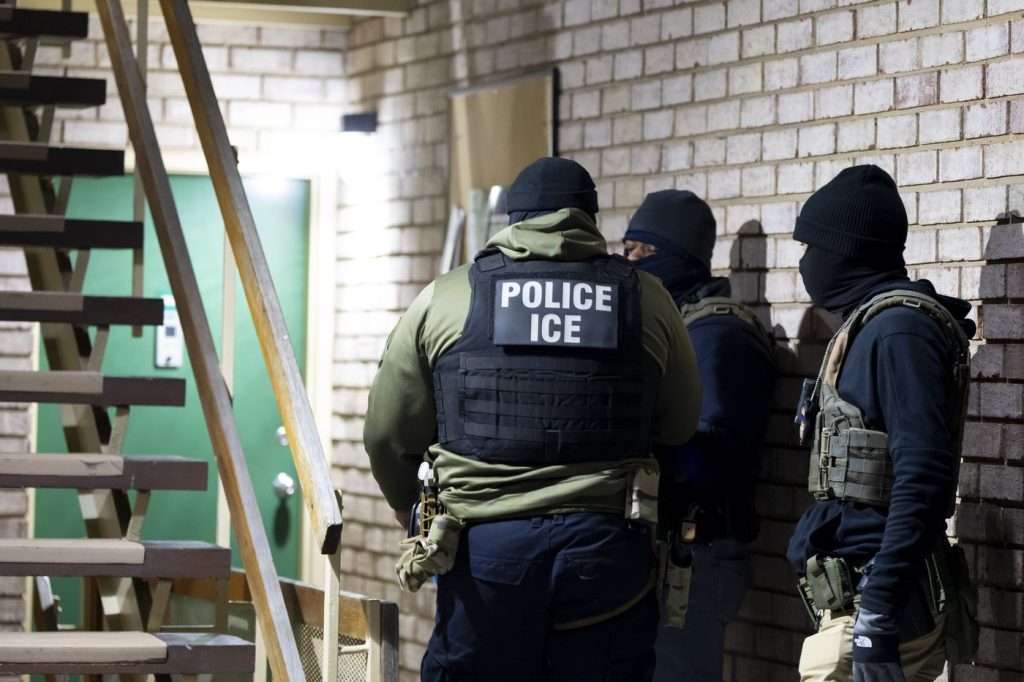In a notable move targeting immigration enforcement, U.S. immigration authorities are now demanding that landlords provide extensive documentation related to their tenants. This includes leases, rental applications, forwarding addresses, identification cards, and other personal information. The development is regarded as a tactic to support the Trump administration’s push for mass deportations.
Eric Teusink, a real estate attorney based in the Atlanta area, has reported that several of his clients have recently received subpoenas requesting complete tenant files. These rental applications typically contain sensitive information such as work history, marital status, and family relationships. The subpoenas, which Teusink made available to the Associated Press, specifically cite the need for information about other individuals residing with the tenant as well.
One subpoena reviewed, dated May 1, was issued by a representative of the U.S. Citizenship and Immigration Services (USCIS) anti-fraud unit but lacks a judge’s signature. The distribution of such subpoenas remains unclear, although they suggest an intensified effort by the administration to track down undocumented individuals in the country. Many such individuals previously provided U.S. addresses to authorities as a condition of their entry without a visa. Under Trump's direction, the administration has also largely terminated temporary protected status for various groups who were allowed into the U.S. during Obama's presidency.
Legal experts and property management professionals have raised substantial concerns regarding the subpoenas, particularly on the grounds that they are not judicially sanctioned. This raises questions about landlords' compliance and potential violations of the Fair Housing Act, which prohibits discrimination based on race, color, or national origin. Critics argue that landlords may feel pressured to comply despite the absence of a judge's order, raising privacy concerns for the tenants involved.
Stacy Seicshnaydre, a law professor from Tulane University focusing on housing law, cautions against “overcompliance.” She points out that the legitimacy of such subpoenas should not be assumed just because they are issued by an officer. There has been a long-standing practice among ICE agents to use supervisor-signed subpoenas for access to homes, an approach that advocacy groups have countered with "Know Your Rights" campaigns. The two-page subpoena shared by AP indicates it is an administrative effort and threatens potential contempt of court charges against landlords failing to comply, despite lacking judicial endorsement.
Tricia McLaughlin, a spokesperson from Homeland Security, defended the use of such subpoenas, emphasizing that they are not to be ignored and that ICE is authorized to obtain necessary records through administrative subpoenas. Failure to comply can result in significant legal ramifications, contradicting claims that they can be disregarded.
Teusink explains that his clients, who manage multifamily properties, are accustomed to receiving subpoenas for other reasons—usually backed by judicial authority, such as requests for surveillance footage. He mentions that practitioners are baffled by these new subpoenas. After consulting with immigration attorneys, he concluded compliance is optional since the requests do not come with a judge's signature.
Other attorneys, including Boston-based Jordana Roubicek Greenman, have similarly advised their clients against responding to vague requests from ICE officials. Concerns have also surfaced among property managers and tenants following rumors regarding these subpoenas. Anthony Luna, CEO of Coastline Equity, reported that most property managers do not intend to comply if they receive such requests.
While ICE subpoenas predate Trump's presidency, they have significantly increased under his administration, as observed by legal professor Lindsay Nash of Yeshiva University. Historically, these subpoenas were mostly directed toward state and local police, with landlords rarely receiving such requests. Although ICE can enforce subpoenas, this would require filing a lawsuit and obtaining a judicial endorsement, granting landlords an opportunity to contest the requests.
Overall, the new tactics raise concerns about the invasive nature of the information requests and the potential for misuse, reminding property managers and landlords of their responsibilities regarding tenant privacy.











